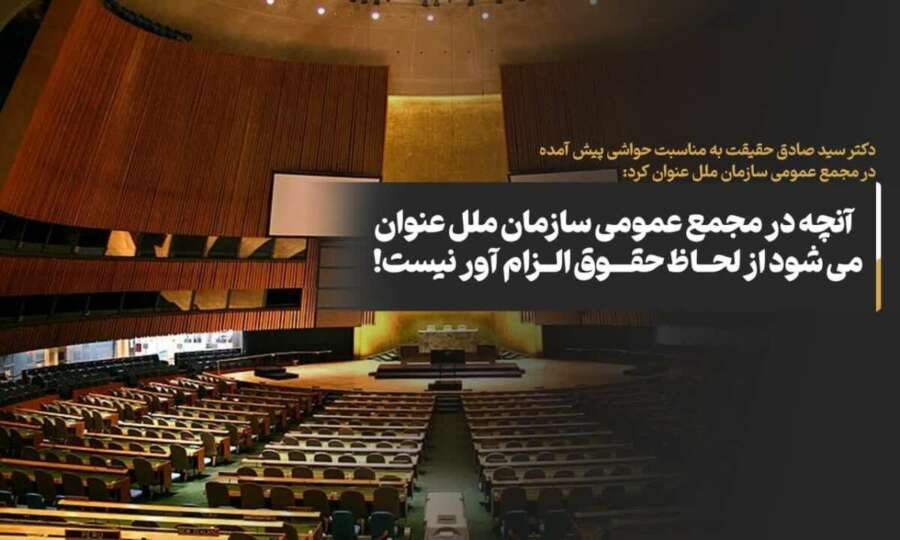On the occasion of the incidents that happened in the UN General Assembly, we went to Dr. Sayyid Sadiq Haqiqat and asked him about the legal status of the UN. The following text is an explanation of his answer in an exclusive conversation with the Institute of Contemporary Jurisprudence Studies:
The United Nations has different organs with different functions. The Security Council, which is in the 5 basic countries of the United Nations, takes important decisions and is elected on a rotating basis, but because the issues of the world are mainly disputed between the countries of the East and the West, usually many resolutions are vetoed by the opposing country. Another institution that exists is the Court of Justice, which has legal status and its rulings are binding. Another important pillar of the United Nations is the General Assembly. The statements issued by the General Assembly are only politically important, but not legally binding, that is, they have a political impact in the world, but they are not legally binding; For instance, suppose that the United Nations condemned Israel several times for its aggression, but because it does not have legal consequences, it has no specific legal effect. Likewise, the speeches of the presidents have a lot of political effects, but they do not necessarily have a legal meaning and are binding. Besides these speeches, meetings between the leaders of the countries take place, and there may be a margin that is no less important than the text. It means the meetings that the heads of different countries have with each other, but they are not legally binding. Thus, the United Nations may or may not have an executive guarantee depending on which institution it is considering. As we said, the Security Council has an executive guarantee, but the General Assembly does not.

